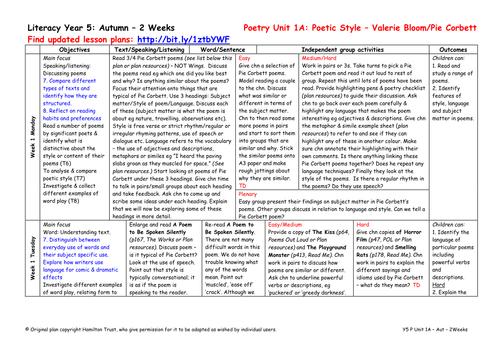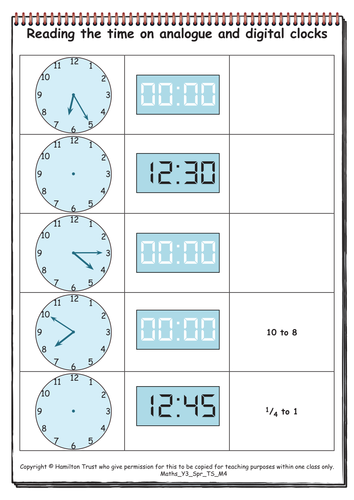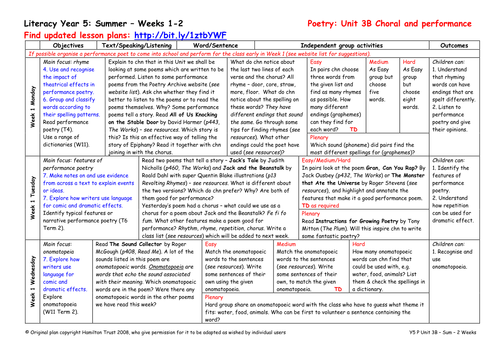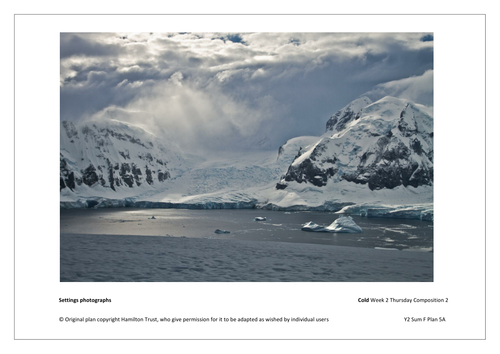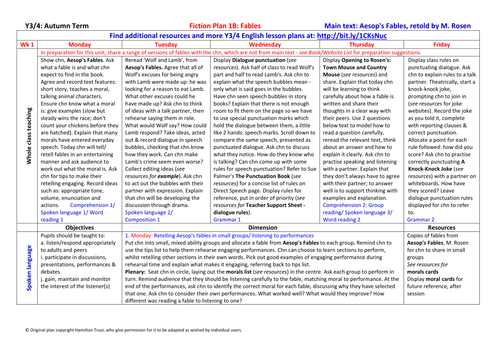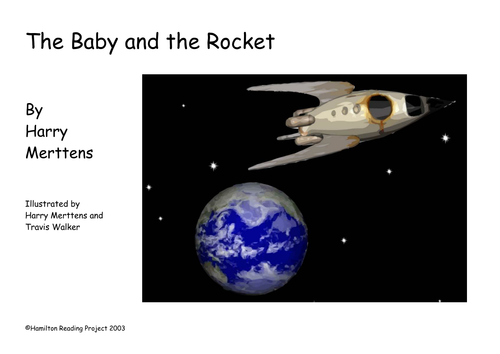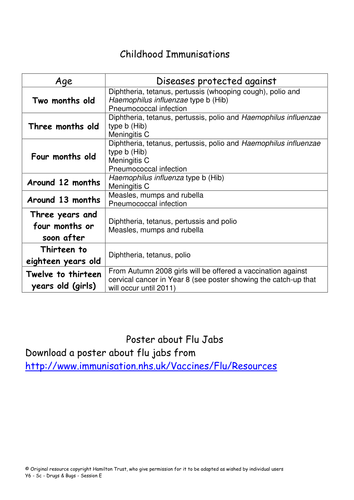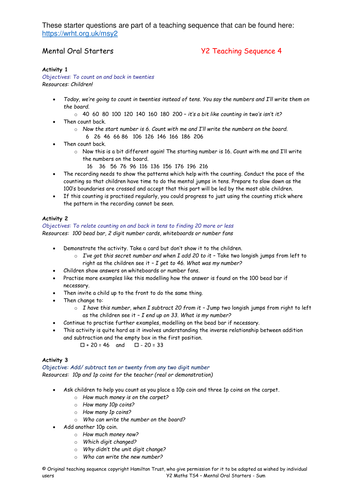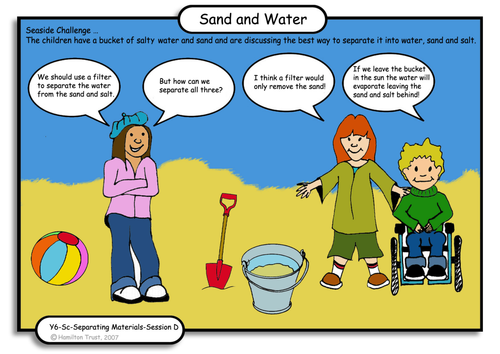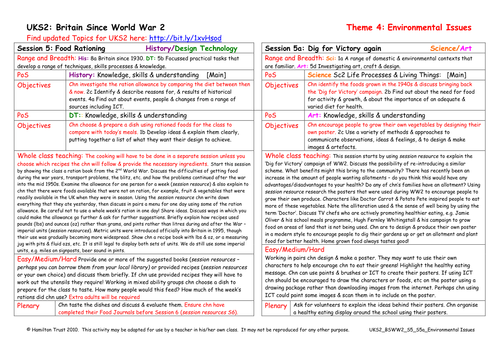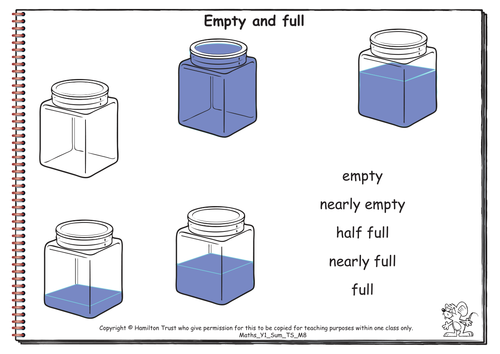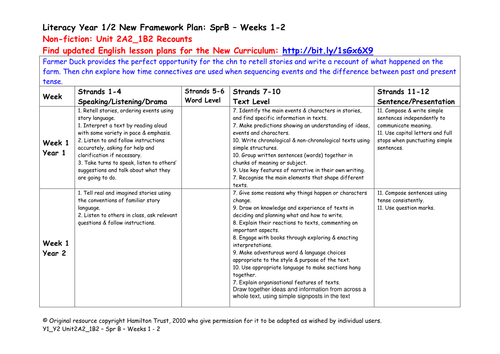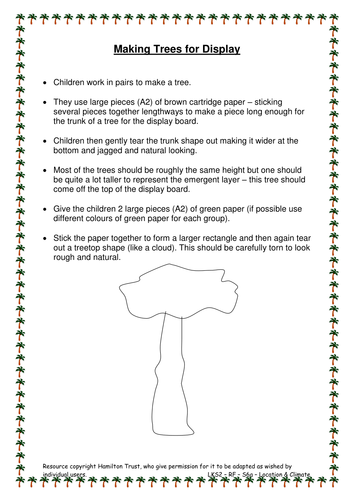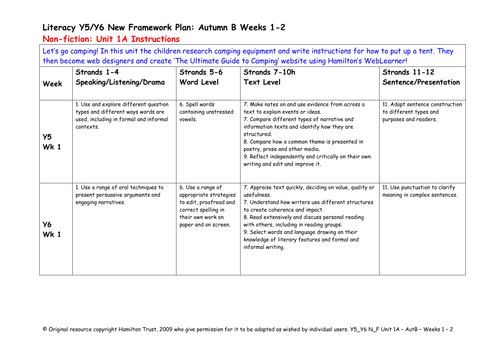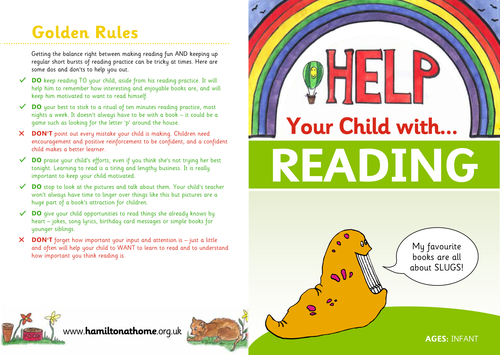
3k+Uploads
9988k+Views
11603k+Downloads
All resources

Yr 5 Poetry Unit 1A Poetic Style
Children have the opportunity to hear, read and respond to a range of poems from two contrasting writers. They write and perform their own free verse poems, inspired by those they have read. By adapting and borrowing elements they develop a style of their own.
Hamilton’s English planning covers all aspects of English, including SPAG, within the context of a wide range of fiction, non-fiction and poetry genres, such as traditional tales, recounts and performance poems.

Maths Y3 Spring Teaching Sequence M4
Time, reading digital and analogue clocks (minutes past and to) (three days).
Children revise the equivalent digital and analogue ways of recording times between the hour and half past the hour (minutes past), and are then introduced to how to describe analogue times as minutes to the next hour. They practise finding the equivalent digital and analogue times. Intervals are found between times, but not bridging the hour at this point. Chn work together to think of times 20 minutes, then 1¼ hours apart.
Find additional lesson plans and resources at www.hamilton-trust.org.uk.

Yr 5 Poetry Unit 3B Choral and performance
Compare performance poems that tell a story and identify the features that make a good performance poem. Children then write their own performance poetry based on a fairy tale. Perform it for an invited audience using dramatic conventions to enhance the poem.

Year 2 Fiction 5: Quest stories
Children read a range of quest stories, exploring structure and language choice. They explore 4 types of sentence and experiment with tense. Children write their own extended stories, concluding by performing their writing to a younger child. This plan uses the books Lost and Found and The Way Back Home, both by Oliver Jeffers and We're Going on a Bear Hunt by Michael Rosen. It also uses Hamilton Group Reader The Quest.

Everyday Materials - Materials Matter - Year 2
Explore the useful properties of materials with a range of investigations involving absorbency and flexibility. Discover which type of kitchen towel or cloth is most effective at mopping up spills; consider why building materials must be absorbent and which ones fit the bill; create artwork by exploring the textures of materials and learn all about wax and how to re-mould it.
Includes 6 session plans & resources:
01 - Mopping up
02 - Are bricks absorbant?
03- Waterproofing materials
04 - Printing
05 - Resist the wax!
06 - Melting and moulding
Hamilton’s science scheme uses hands-on investigative science activities to promote a deep understanding of scientific concepts and help children develop effective methods of scientific enquiry. Our scheme is fresh, original and free!

Year 3/4 Fiction 1: Fables
Reading a wide range of fables, including Rosen’s Aesop’s Fables, children explore dialogue through drama, debate moral messages and write letters in role.
Children write their own fables, hold a festival and try them out on a live audience. Will they win rave reviews?
Suitable for Year 3 or 4.
Hamilton’s English planning covers all aspects of English, including SPAG, within the context of a wide range of fiction, non-fiction and poetry genres, such as traditional tales, recounts and performance poems.

Reception Non-fiction (Space): Information and instructions (weeks 1-2)
Use the Animated Tale The Baby and the Rocket to introduce children to information texts. Compare facts and fiction. Make a large rocket and use photos of the construction to write instructions. Lots of activities for children to investigate both planets and rockets.

Diseases and antibiotics
Look at diseases caused by micro-organisms. Invite a health professional into class for children to question. Discuss prevention and cure of illnesses caused by microbes including vaccination and antibiotics. Find out about the work of some famous scientists.
Suitable for Y6 pupils.

Animals, including humans - Excuse Me, Are These Your Teeth? - Year 4
Excuse me, are these your teeth? Who did this poo? Am I a predator?....Find the answers to these and other peculiar questions about digestion and food chains.
Includes 6 session plans & resources:
01 - Excuse me, are these your teeth?
02 - What happens to my food?
03 - What does the small intestine do?
04 - What did this poo?
05 - Who's the predator?
06 - Did you know...?
Hamilton’s science scheme provides children with a broad but comprehensive experience of primary science that systematically covers all of the National Curriculum for England objectives. Each year group is split into 6 blocks of 6 sessions, each of which can be completed within a half-term. We present them in a recommended teaching order, but you may adapt this to fit your requirements. Working scientifically, investigations and meaningful outcomes are fully incorporated in each block.
Find out more: www.hamilton-trust.org.uk/scites

Mental Oral Starters - Year 2
Mental and oral starters for Year 2 Summer Teaching Sequence 4.
To count on and back in twenties. To relate counting on and back in tens to finding 20 more or less. Add/ subtract ten or twenty from any two digit number.
Find additional lesson plans and resources at www.hamilton-trust.org.uk.

Evaporation
Evaporation is the name of the game in this session as children use it to separate materials in solutions. They investigate a variety of liquids to see which leave a residue after evaporation and grow their own salt crystal. Suitable for Y6 pupils.

Dig For Victory Again
During WW2 people were encouraged to dig up their gardens to grow food. Should this scheme or a similar one be re-introduced? What benefits would this bring? Children research WW2 posters and design one for a new campaign to encourage healthy eating.
Hamilton’s cross-curricular topics provide extensive planning resources to facilitate teaching a range of subjects under specific historical, geographic or thematic umbrellas.

Energy
This session we consider how we are using up fossil fuels. How did we heat our homes and cook in the past? Discuss renewable energy and any local schemes to try and use more renewable energy. Challenge children to make a solar oven and cook something with it!

Maths Y1 Summer Teaching Sequence M8.
Capacity (three days).
Children capacities of pairs of containers by filling one with water and pouring it into the other to see if the water overflows or doesn’t fill the second container. They then use cups of water to fill containers and discuss how this makes it easier to compare the capacities of more than two containers. Chn use different non-standard measures to fill containers, making estimates as they gain more experience.
Find additional lesson plans and resources at www.hamilton-trust.org.uk.

Yr 1/2 NF Unit 2A2-1B2 Recounts : Farmer Duck
Farmer Duck provides the perfect opportunity for the children to retell stories and write a recount of what happened on the farm. Then children explore how time connectives are used when sequencing events and the difference between past and present tense.
Find other lesson plans and resources at www.hamilton-trust.org.uk.

Seasonal changes - Wonderful Weather - Year 1
Think about what you already know about weather, look at weather forecasts and video your own school weather forecasts; do weather observations and make collages about the seasons; have fun with shadows; make a class weather station that can measure rainfall, wind direction and temperature.
Includes 6 session plans & resources
1 - What do we know about weather?
2 - Weather Watching
3 - Shadow fun
4 - Setting up a weather station: measuring rainfall
5 - Setting up a weather station: measuring wind direction
6 - Setting up a weather station: make a thermometer box
Suitable for Year 1 pupils.
Hamilton’s science scheme uses hands-on investigative science activities to promote a deep understanding of scientific concepts and help children develop effective methods of scientific enquiry. Our scheme is fresh, original and free!

Rainforest Display
Children create a piece of rainforest in the classroom in this session. After looking at images of rainforests and their trees, children use coloured papers to create trees and leaves for display.
Suitable for years 3 and 4.

Roman army and busts
This block introduces the Roman Army. What was its organisation? What were the Roman soldiers like and why did so many Britons join the Roman army? Children learn about the army and then use this knowledge to help them understand how Roman busts differed from their Greek equivalent. They create their own Roman Bust in relief from clay.
Includes:
- Topic Overview
- Block Overview
- Lesson 01: Understanding why the Roman army was so powerful
Children learn about the Roman army and train together, being given orders by a centurion. They act out a battle.
- Lesson 02: Understanding the power of the Roman army through 3D art
Children explore some of the features of the Roman Army by looking at the differences between Roman & Greek busts.
- Lesson 03: Recording different facial expressions in sketchbooks and experimenting with clay
Children start to plan and design their Roman busts, thinking about the features and expression of a soldier in the Roman Army.
- Lesson 04: Creating a fierce depiction of themselves from clay
Children re-cap all they have learned about the Roman Army. Then they create a Roman bust in relief from clay.
Find more lesson plans and resources at www. hamilton-trust.org.uk.

Yr 5/6 NF Unit 1A Instructions: Camping
Let’s go camping! In this unit the children research camping equipment and write instructions for how to put up a tent. They then become web designers and create ‘The Ultimate Guide to Camping’ website using Hamilton’s WebLearner!
Find other lesson plans and resources at www.hamilton-trust.org.uk.

